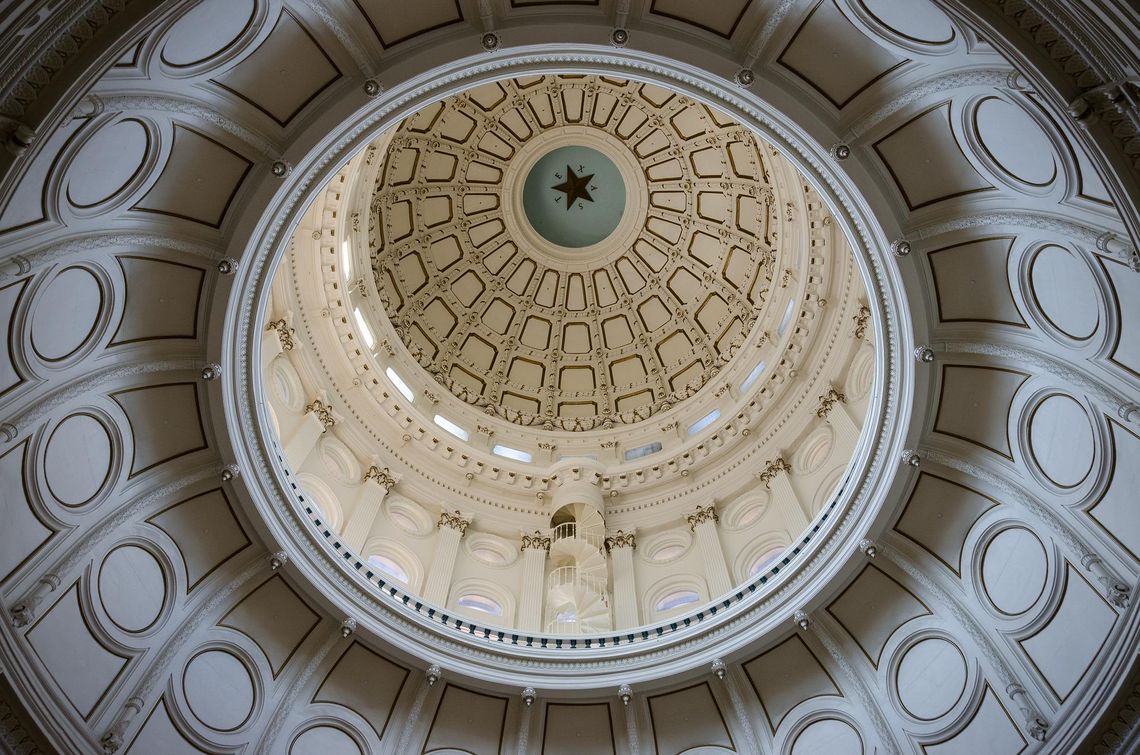AUSTIN — The Texas House of Representatives on April 3 approved much-anticipated legislation written to revise the state’s public school finance system. The vote was 148-1, and the bill now moves to the Senate for consideration.
House Bill 3 would increase pay for public school classroom teachers, librarians and other full-time personnel and also would enable property tax relief. Primarily authored by House Education Committee Chair Dan Huberty, R-Houston, joint authors include Reps. Diego Bernal, D-San Antonio; John Zerwas, R-Richmond; Ken King, R-Canadian; and Alma Allen, D-Houston.
HB 3’s estimated net cost would be $9.5 billion, covering the fiscal biennium that ends Aug. 31, 2021. In addition to pay increases and incentives, HB 3 would reduce recapture and enable some $2.7 billion in property tax relief. The legislation, among its general provisions, changes the order in which the Foundation School Program is financed so that state-available school funds would be applied before locally generated property tax revenue.
After the House voted, Gov. Greg Abbott applauded lawmakers for their work and said, “Texans are demanding meaningful reforms to our school finance system, and today’s passage of HB 3 in the House is a vital step toward that goal. By reducing recapture, investing more money in our schools and in our teachers, the Legislature is making changes that will have a lasting impact on our education system, and more importantly, our students.”
State Rep. Gina Hinojosa, D-Austin, chair of the House Democratic Caucus Special Committee on Education, in an April 3 news release called HB 3 “the bill we have been working for.”
“To the teachers who dedicate their working lives to our kids, who for too long have been under-appreciated and unheard: We hear you, and this bill is for you,” she said.
“In February, House Democrats put forward our Texas Kids First Plan. We laid out a number of key priorities for our vision for the future of public education in Texas. Today, I am pleased to say that this bill incorporates most of those priorities.
“House Bill 3 is an example of what happens when we come together — Democrats and Republicans — and instead of fighting about our different visions, speak honestly about what we want and what we can achieve together. We can expect and can tolerate no less,” Hinojosa added.
Both houses must agree
Meanwhile, the Senate Finance Committee on April 3 unanimously approved a budget bill that matches the House’s appropriation on two of the session’s top priorities: education finance and property tax reform.
A report filed by the Senate News Service points out that while the House and Senate have settled on $9 billion in additional funding toward those priorities, exactly how the funds would be spent is still up for debate.
Senate Finance Committee Chair Jane Nelson, R-Flower Mound, said, “We continue to negotiate this issue with the House, but both chambers have now reached $9 billion set aside for whatever agreement we reach.”
Revenue increase noted
State sales tax revenue totaled $2.6 billion last month, an amount 9 percent greater than the amount calculated for the month of March 2018, Texas Comptroller Glen Hegar announced April 2.
The comptroller’s office reported increased collections in all major economic sectors, including retail trade, information services, oil and gas and restaurants. “Much of the increase stemmed more from consumer spending rather than business spending,” Hegar said.
Furthermore, total sales tax revenue for the three months ending in March 2019 was up 7.3 percent compared to the same period a year ago, according to agency statistics.
RRC marks anniversary
On March 31, 1919, the Texas Legislature enacted a statute giving the Texas Railroad Commission regulatory authority over the oil and gas industry in the Lone Star State.
Railroad Commissioner Christi Craddick wrote an April 1 editorial commemorating the milestone. Among the points she made was that the commission’s well-plugging program is hitting historic numbers. In fiscal years 2018-2019, the Texas Legislature set a performance goal for the agency to plug 1,958 abandoned wells. However, Craddick said, the commission is on track to plug about 3,000. Craddick pointed out that funds to plug the wells come from fees paid by the energy industry, not from Texas taxpayers.







